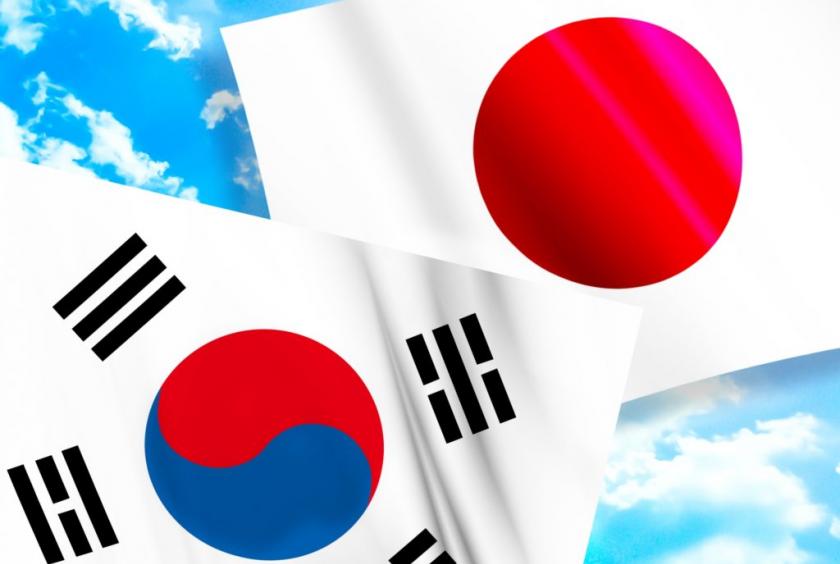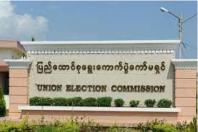
(Yomiuri Shimbun/ANN) — Seventy-four percent of Japanese respondents in a recent opinion survey jointly conducted by The Yomiuri Shimbun and The Hankook Ilbo said they do not trust South Korea, the highest level observed in 14 surveys since the question was first asked in 1996.
The figure tops the 73 percent recorded in 2014 and 2015 and increased from 60 percent in last year’s joint survey.
The latest survey was conducted via phone between May 24 and 26.
In South Korea, meanwhile, 75 percent said they do not trust Japan, down from 79 percent last year.
Asked how they evaluate Japan-South Korea relations, 83 percent of Japanese respondents said they were bad, up from 63 percent last year, marking the third-highest figure behind the 87 percent observed in 2014 and 85 percent in 2015. Thirteen percent said relations were good, down from 33 percent last year.
Among South Koreans, 82 percent said relations were bad, up 13 percentage points from last year, while the share of those who said relations were good fell from 26 percent to 15 percent.
Issues involving so-called comfort women and former requisitioned workers are likely to have caused the rapid deterioration in public perceptions of the bilateral relationship.
When asked about Seoul’s decision to dissolve a financial support foundation for so-called comfort women based on the 2015 bilateral accord, 74 percent of Japanese respondents said the move was unconvincing. Fifty-six percent of South Korean respondents were also not convinced.
However, 87 percent of South Korean respondents believe Japan needs to further apologize over the issue, a sharp difference from the 80 percent of Japanese respondents who believe additional apologies are unnecessary.
Regarding the issue of former requisitioned workers, Tokyo claims the issue was resolved by the 1965 Japan-South Korea agreement on economic cooperation and the settlement of problems concerning property and claims. Nevertheless, South Korea’s Supreme Court has ordered Japanese corporations to pay compensation, leading Japan to claim the ruling violates international law.
Seventy-eight percent of Japanese respondents agree such claims are reasonable, while 79 percent of South Korean respondents say they are unreasonable.
Chilly ties impact business
Chilly Japan-South Korea relations have cast a shadow on corporate activities and the exchange projects of local governments in Japan. However, people in Japan and South Korea — especially young people — remain highly interested in each other’s country, and exchange on an individual basis is strong.
The two countries have a symbiotic relationship in the semiconductor and home electrical appliance industries, where materials from Japan support production in South Korea.
“After the rulings on former South Korean requisitioned workers, economic ties between the two countries are certain to start shrinking,” said Toru Nishihama, chief economist at Dai-Ichi Life Research Institute Inc. “If the assets of the Japanese companies in question are seized in South Korea, there’s a risk that shareholders will file derivative actions against the companies. It’s therefore hard to find positive factors in corporate activities.”
Meanwhile, the city government of Chichibu in Saitama Prefecture suspended a project to exchange officials with its South Korean sister city of Gangneung, planned for the end of last year. Chichibu made the decision after receiving a flood of complaints via telephone and other means. The complaints were believed to have been triggered by online posts criticizing the exchange project.
“Out of consideration for the safety of officials of both cities, we had no choice but to suspend the project,” said the Chichibu official in charge.
On the other hand, the younger generation in particular has been swept up in the so-called “third Korean boom” that has arrived in Japan. Koreatown in the Shin-Okubo district in Tokyo is always crowded with women wearing thick eyebrow makeup and brightly colored lipstick, styles that are popular in South Korea.
According to major tourist firm Nippon Travel Agency Co., based in Tokyo, more people in their teens and 20s are making multiple visits to South Korea on an individual basis for the purpose of music and cosmetics.
In the joint survey, more than 40 percent of Japanese respondents in the 18-29 and 30-39 age brackets said that they want to travel to South Korea, while 65 percent of South Korean respondents in the 19-29 age bracket said they want to travel to Japan.
“We enjoy each other’s culture and fashion through gathering information from the social media sites of fashion models and their fans. We aren’t bothered by relations between the countries,” said a 23-year-old woman who works at a cosmetics shop in Shin-Okubo and travels to South Korea every six months.









